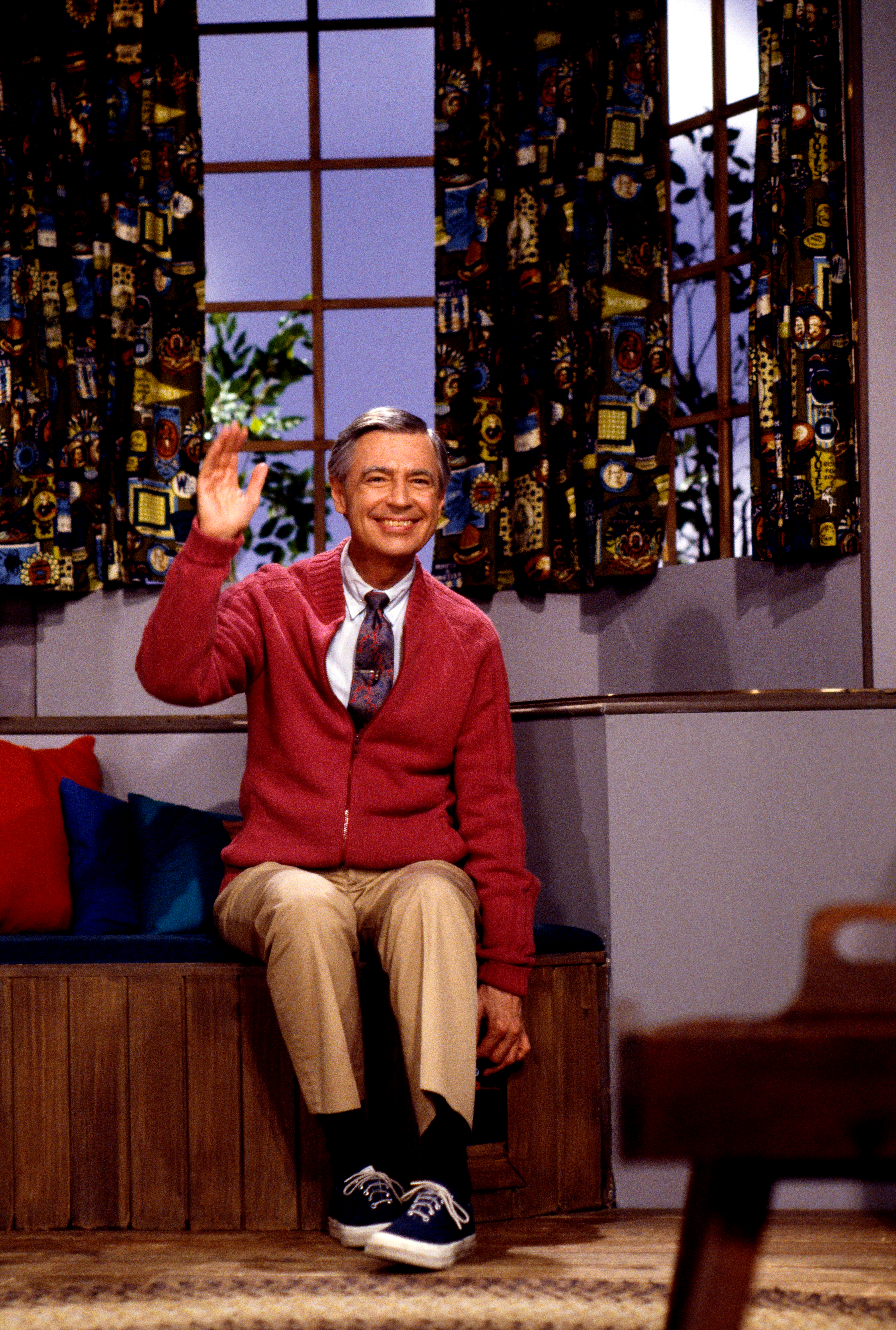It's a beautiful day to talk about Mister Rogers
Why everyone is so enamored again with Mister Rogers' Neighborhood


A free daily email with the biggest news stories of the day – and the best features from TheWeek.com
You are now subscribed
Your newsletter sign-up was successful
It's a beautiful day to talk about Mister Rogers. Fifteen years after the legendary host of children's TV passed away, the entertainment world is being swept up in Fred Rogers revivalism.
First, there's director Morgan Neville's upcoming documentary Won't You Be My Neighbor?, which is out in theaters on June 8 but has already been making the rounds at film festivals. People who've seen it feel obliged to warn those who haven't that there will be tears. Sniffles at first. Then swells. Then full, lurching sobs. It's not even that Neville is trying to keep audiences crying from start to finish. For that, blame the doc's subject, who's so preternaturally kind that his very presence reduces even the most hardened viewers to a puddle.
I can attest to this. I attended a screening last month, and as soon as I heard that familiarly lilting, sing-song voice, I felt like I was 4 years old again. The feeling was overwhelming. Thank goodness Mister Rogers was there on screen to tell me how it's okay to have feelings.
The Week
Escape your echo chamber. Get the facts behind the news, plus analysis from multiple perspectives.

Sign up for The Week's Free Newsletters
From our morning news briefing to a weekly Good News Newsletter, get the best of The Week delivered directly to your inbox.
From our morning news briefing to a weekly Good News Newsletter, get the best of The Week delivered directly to your inbox.

But the documentary isn't the only tribute to Mister Rogers making the rounds right now. Not long after Won't You Be My Neighbor? debuted at the Sundance film festival, TriStar Pictures announced plans to distribute a biopic, with Tom Hanks playing Rogers, based on Tom Junod's classic 1998 Esquire article about his friendship with the TV host. Production is set to begin this fall.
PBS, the home of Mister Rogers' Neighborhood from 1968 until production of new episodes ceased in 2000, aired the Michael Keaton-hosted 50th anniversary tribute Mister Rogers: It's You I Like earlier this month. On March 20 (Rogers' 90th birthday), Twitch teamed with PBS to launch a marathon of 90 of the most popular Mister Rogers' Neighborhood episodes, followed by a complete run of the series. For those still into physical media, Mister Rogers' Neighborhood: It's A Beautiful Day Collection gathers over 900 minutes of classic episodes and moments, and hits stores on March 27.
Saying that vintage Mister Rogers clips "hold up well" or "are as good as they ever were" requires some mitigation. Mister Rogers' Neighborhood was produced for pre-schoolers, and while strong arguments have been made (including by The Washington Post's Alyssa Rosenberg) that popular entertainment shouldn't get a pass because it's aimed at youngsters, there are unmistakable differences between what toddlers and their older siblings need from TV.
When Fred Rogers felt the calling to pursue a career in television — rather than the Presbyterian ministry, for which he'd been ordained — his overt mission was to make something more life-affirming and less clamorous than what very young children were used to seeing when their parents plopped them in front of the tube. Mister Rogers' Neighborhood doesn't over-stimulate. The host speaks slowly and quietly, using simple sentences with direct meanings; and even during the parts of the show that venture off into the puppet-populated "Neighborhood of Make-Believe," the stories are muted in tone, non-violent, and deliver elementary lessons about the proper way to behave.
A free daily email with the biggest news stories of the day – and the best features from TheWeek.com
So why is the adult world so enamored right now with Mister Rogers?
Partly it's nostalgia. When I saw Won't You Be My Neighbor?, I sat next to a good friend who later described the experience as like stepping into a time machine. Just seeing the old 1970s PBS logo alone was enough to send him whooshing back to childhood, with all its attendant comforts and anxieties.
I've long felt that our compulsion to revisit the shows, movies, and music we grow up with isn't just about some vague belief that "those were the good ol' days." There's an investigative impulse behind our looking back. Our memories of our own pasts are so hazy sometimes. Revisiting bygone popular culture can help solidify images and notions that we've half-forgotten, or that we were maybe too preoccupied to notice the first time we encountered them.
In the case of Mister Rogers' Neighborhood, what stands out most is the overall calmness and clarity. Rogers understood that sometimes adults presume too much about what kids do and don't understand, or are too rushed to walk children through the basics of life. So he'd explain everything from how the human body works to why some catastrophic real-world events make grown-ups sad. His primary message was that everyone feels overwhelmed, helpless, ignorant, or angry sometimes. Extreme emotions are part of being alive … and being alive is wonderful.

One thing I'd forgotten about the whole Mister Rogers phenomenon until seeing Won't You Be My Neighbor? is that not long before he died in 2003, Rogers' persona and ideals came under attack. Right-wing columnists, talk radio hosts, and TV commentators blamed the "softness" and "entitlement" of the post-boomer generation on the "evil" of Mister Rogers, who told kids they were special, no matter what. Their argument against Fred Rogers' life's work is that it convinced children they didn't need to accomplish anything.
That criticism isn't entirely wrong. But it's more than a little askew, given that it's generally coming from pundits who self-identify as conservative Christians, aimed at one of their own. Rogers' worldview was inextricably bound to his theology, and to the Christian concept of "grace." This idea that we are broken, but that we are loved, and that we matter to God ... that's fundamental to many Christians.
It's not a point-of-view we see represented very often by a TV personality. That too is part of the enduring fascination with Fred Rogers. He's like a figure of myth: the Eisenhower Republican who treated religion as a brace, not a cudgel.
To politicize Mister Rogers' Neighborhood does the show and its creator a disservice. Yes, it's hard to miss that Rogers himself used his platform to promote inclusiveness, for people of all backgrounds, races, and capabilities. But that's a human value, which people of varying political persuasions aspire to — and often fail to live up to.
And perhaps that's why spending even a few minutes contemplating Fred Rogers makes us cry. It's because for many of us, he reminds us of who we should be ... and then he tells us it's okay that we're not.
Noel Murray is a freelance writer, living in Arkansas with his wife and two kids. He was one of the co-founders of the late, lamented movie/culture website The Dissolve, and his articles about film, TV, music, and comics currently appear regularly in The A.V. Club, Rolling Stone, Vulture, The Los Angeles Times, and The New York Times.
